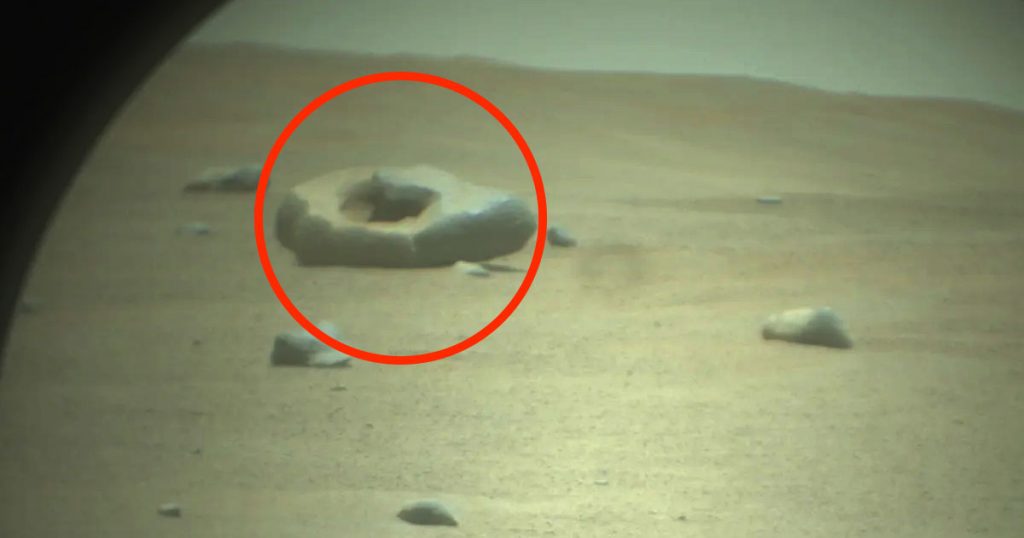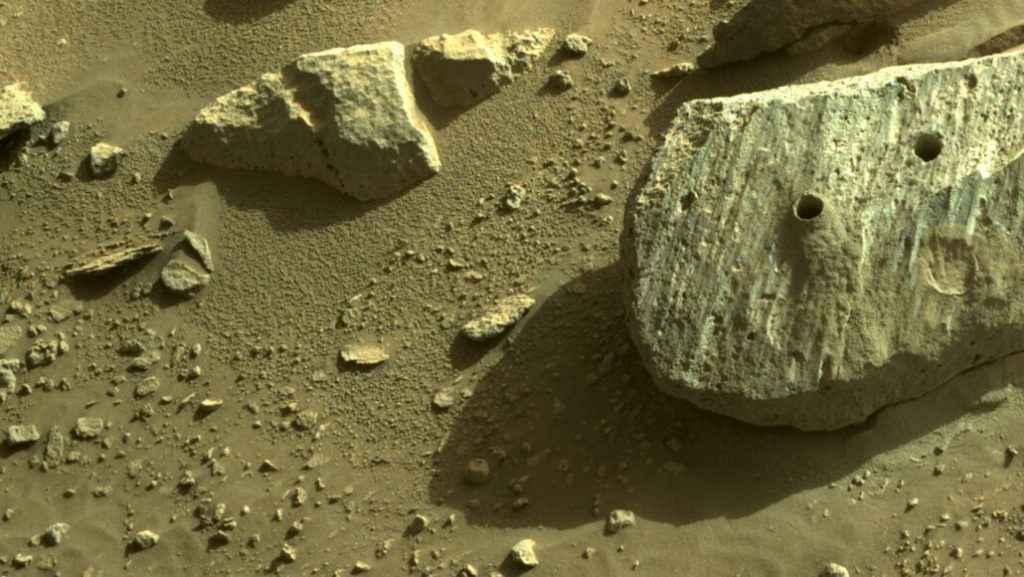Earlier this month, NASA’s Perseverance Mars rover made a fascinating discovery while traversing the delta of Mars’ Jezero Crater—an ancient dried-up lake. In the distance, the rover spotted a peculiar donut-shaped rock that has left scientists perplexed. Located approximately 330 feet away from the rover, the rock measures at least ten inches in diameter and features a prominent hole right through its center.
CNN recently reported about an oddity that’s perplexing scientists all around the globe. This very strange rock that was found on Mars has them scratching their heads, with some thinking it could be a meteorite that got weirdly shaped during its plunge through the red planet’s atmosphere. But there are others who believe it may have been crafted by the strong rivers that once ran across Mars in earlier days.

Jim Rice– an assistant research scientist at Arizona State University– was kind of dubious about the meteorite hypothesis. With a skeptical tone, he explained that he couldn’t say with absolute confidence it’s not a meteorite; but that it was most unlikely. He drew attention to the Neretva Vallis’ oodles of rocks with identical hollowed-out interiors, which he hypothesizes had been washed away by flooding.
While Rice downplays the significance of the rock, not everyone agrees with his assessment. Pascal Lee, a senior planetary scientist at the SETI Institute, proposes that the donut-shaped rock could be a meteorite with eroded weaker material in its interior. Alternatively, Lee suggests that it might have been displaced from another part of Mars by the impact of a large asteroid.

Despite the diverging viewpoints, the team operating the Perseverance rover has not announced any plans to examine the rock further. Pascal Lee believes it is essential to investigate the rock more closely to gain insight into its origins. If the opportunity is missed, the chance of unraveling the mystery may be lost forever.
The discovery of this peculiar Mars rock highlights the ongoing scientific exploration and curiosity about our neighboring planet. As future missions continue to unravel the secrets of Mars, it is hoped that more discoveries like this will shed light on the planet’s past and help scientists piece together its intriguing geological history.


